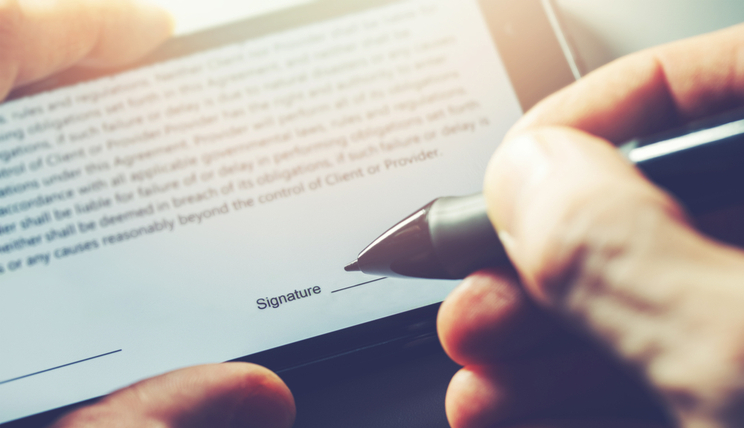
How to Flush out Sales Showstoppers in Complex Market Conditions
15/04/2020
The Four Essential Areas of Inspection in Strategic Sales
08/06/20205 Ways to Overcome Social Distancing Barriers in Complex Sales

Businesses are planning for a return to office working, with some staff continuing to operate from home. With Harvard Business School predicting that some social distancing could last until 2022, there is no question that workplaces will change considerably long term. A recent survey found that;
- 78% of managers are making home working part of their organisations’ future.
- 50% of managers said they would be actively encouraging remote working.
- 25% of staff said they would be home working at least half of the time.
According to McKinsey , shifts in working behaviour (making it harder to pin down the customer), combined with a rather sombre business outlook will see lower than expected spend levels and delayed projects in b2b sales pipelines.
For customer-facing staff, social distancing presents a huge challenge. Sales organisations that put together particularly complex deals, with long lead times involving a multitude of stakeholders, will need to marshal resources and be pragmatic about how they approach this challenge. Here are our 5 tips to overcome social distancing barriers.
1) Avoid Focussing on Seller Activity Levels
Many sales staff have enjoyed the increased responsibility and authority that has come their way during lockdown and much research has cited increased employee productivity levels. But having a more remote sales team can feel unwieldy for managers.
Without the data sets to problem solve, managers cannot lead with purpose in the virtual world and stress ensues. There is then a risk of reverting to measuring the activity levels of sales staff rather than more valuable criteria. McKinsey predicts that investment in sales effectiveness tools is likely to increase. Tools that embed KPIs into CRM for example, set a common language and ensure sellers know what they are expected to report, driving up sales effectiveness.
2) Make Every Customer Interaction Count
There is nothing greater than physical contact with the customer. But with changing working practices, customers will be less inclined to ‘put that date in the diary’. McKinsey found that digitally enabled sales interactions are now twice as important to b2b buyers as tradition sales interaction methods. In many cases complex deals will be built and agreed without any physical contact.
With the potential relaxing of restrictions imminent, it’s time to start re-focusing on the pipeline. When sales meetings do happen, either virtually or face to face, it is vital that sales staff make the interaction count. Otherwise commitments will not be met, and pipelines will be littered with costly inaccuracies. Knowing what physical actions you want the customer to do during the interaction will be key to ensuring those valuable opportunities are not wasted.
3) Develop a Robust Sales Infrastructure
Robust sales processes must accurately track deal progression, collecting data on the true quality of opportunities so teams don’t waste valuable time on deals they will lose. McKinsey has suggested that these front-line sales processes will need to be re-designed to improve sales activities relevant for today’s remote working environment.
Processes that inspect qualitative data related to client contact during those valuable customer interactions, and the effectiveness of this activity should be developed. These measures provide the data sets needed to manage resources and intervene accordingly, coaching staff and driving the right behaviours. The forensic understanding of the pipeline achieved will result in more accurate forecasts.
4) Focus Efforts on Winnable Deals
Developing vital planning and qualification skills helps sellers focus their mind on the winnable further increasing sales effectiveness. Robust qualification flushes out objections likely to kill the deal sooner, preventing real objections being raised at the end of the process. With lower spend levels and delayed projects likely, sellers must have the skills to accurately assess the buyer and set up the deal. This many require an enhancement to existing training resources.
Training tools that offer flexibility to suit learning styles, address areas of individual weakness and are supported with structured reviews, ongoing coaching and management reporting can all be deployed virtually. As well as our own eTraining suite, we provide organisations wishing to deploy internal training resources with coaching, content and delivery tools to train team members to become effective sales trainers.
5) Don’t Overspend on ‘Learning’.
Sales teams have used lockdown as an opportunity to take up offers of virtual training to refresh, sharpen up and enhance skills. Developing a skill in something requires knowledge to be utilised to its best effect in daily practices. Training is therefore best delivered in a blended way with approximately 10% formal training, 20% coaching and 70% on the job.
Many sales training investments don’t live up to expectations because the training is too mechanical, or facts-based, focusing on just the formal training (10%) aspect. This means sellers struggle to apply it to real-life customer scenarios. We suggest choosing eTraining solutions rather than e-Learning. e-Training develops skills instead of just knowledge and changes behaviours, aligning ‘theory’ to real work-based practices, processes and organisational KPIs.
We hope these 5 tips set you on your way to a prosperous recovery.
To find out more about our Sales Enablement Solutions click here




